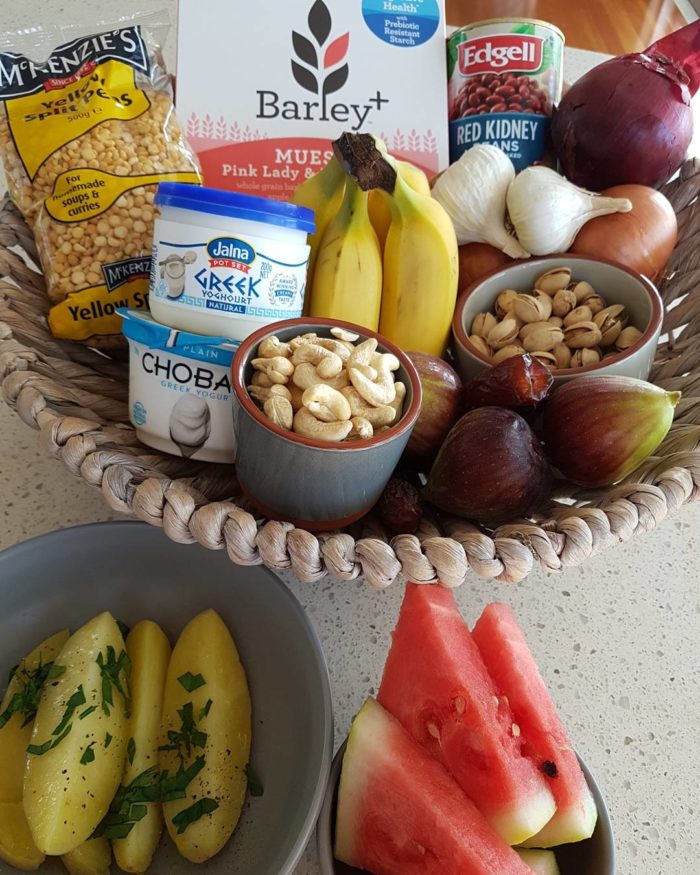The gut microbiome (collection of gut bacteria) is hot topic. There are over 100 trillion gut bacteria living in the gut. Increasing evidence is supporting the view that the gut is the centre of our body and the cornerstone of our health and well-being. The gut carries messages directly to the brain via the vagus nerve, and is the largest maker of serotonin (happy and calming hormone) in the body. Serotonin is important to help regulate our appetite, mood and cope with life’s stressors. Further, 80% of our body’s immunity resides within the gut, making the gut an absolute powerhouse.
It is the balance of “good” and “bad” gut bacteria, as well as the diversity of the “good” gut bacteria that appears to be the key to our health. Very exciting research is currently underway around the globe in gut microbiome linked to anxiety and depression, bowel health, immunity, inflammatory disease, heart disease, diabetes and weight.
It is well known that feeding the gut a diet high in sugar, saturated fat and low in fibre leads to poor diversity and an imbalance of our gut bacteria. Whereas, feeding the gut a diet that is high in plant based diversity (including wholegrains, fruits, vegetables, resistant starch and fermented foods) makes for a balanced and diverse microbiota with many health benefits.
We have known about probiotics for some time, but gaining more attention recently is how crucial prebiotics are to feed your probiotics and ultimately, your gut microbiome success.
Probiotics are “live” beneficial bacteria that can help increase the number and diversity of good gut bacteria. When the probiotics are eaten in sufficient quantity, survive the digestive tract and reach the large intestine, they can have health benefits. Probiotics are naturally present in fermented foods or “live” yoghurts (commonly containing bifidobacterium and lactobacillus). Probiotic supplements are also available, but are quite variable in terms of the number of colony forming units (CFU), the types and strains of bacteria present. There is “no one size fits all” with supplements but you should be aiming for at least 1 billion bacteria (CFU) for a daily dose.
Prebiotics are valuable as they what are probiotics feed on. The fibre in these foods can’t be digested and reach the large intestine to become the fuel for our “good” gut bacteria. This healthy fermentation in our gut produces some beneficial short chain fatty acids which are linked with improved immunity and helps to protect against bowel cancer and asthma.
Include foods high in natural prebiotic fibre
Resistant starch
Rye and barley
Legumes and lentils (especially kidney beans & split peas)
Firm bananas (ripe with green tips)
Cold, cooked starchy carbohydrates (potato, pasta)
Other foods
Garlic & onion
Artichokes
Watermelon, persimmon, nectarines & white peaches
Cashews & pistachios
Figs and dates
Prebiotic honey
What you choose to eat can have a powerfully beneficial impact on the health of your gut microbiome. The diversity of real and wholesome foods will improve the diversity of your gut microbiota within as short a period as three weeks. Yoga, meditation and mindfulness are great for your gut. Managing your sleep, “busy-ness” or stress levels will also have a favourable effect on your gut health.

